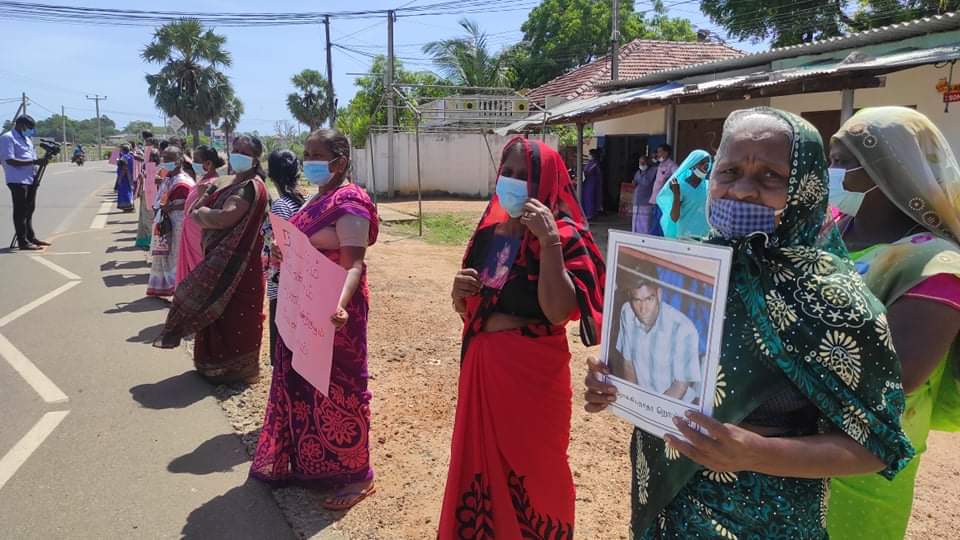
In advance of International Day of the Victims of Enforced Disappearances, Human Rights Watch (HRW) has released a statement slamming the Sri Lankan government for denying preventing the “families of the disappeared from learning the truth about their loved ones” and for protecting the perpetrators from accountability.
“Sri Lanka has the world’s second-highest number of cases registered with the United Nations Working Group on Enforced or Involuntary Disappearances” HRW notes. An estimated 100,000 people have been forcibly disappeared. Whilst such disappearances affect all communities on the island, the vast majority of victims, particularly during the final phase of the war, were Tamil.
Earlier this month, Sri Lankan Minister, Dinesh Gunawardena, claimed without evidence that victims of enforced disappearance are secretly living abroad. This included the high-profile disappearance of journalist Prageeth Ekneligoda. HRW notes that evidence of his disappearances implicates the involvement of Sri Lanka’s army.
The statement further takes issue with President Rajapaksa’s commission into “political victimisation” which seeks to exonerate senior military officials implicated in these disappearances and instead of prosecuting the police investigating the case.
HRW’s statement follows the recent decision by Sri Lanka’s attorney general to drop the charges against the former navy commander, and close Rajapaksa ally, Wasantha Karannagoda in connection with the disappearance of 11 Tamil men and boys in 2008 and 2009.
Read more here: Heeding Victim's Voices: The Struggle of Tamil Families of the Disappeared in Sri Lanka
Office of Missing Persons
Commenting on the Office of Missing Persons established under the Sirisena administration, HRW highlights the failure of the institution to “win the trust of victim’s families” and the “limited progress” it made.
However, they note that Rajapaksa’s recent appointments to the office have gravely undermined its independence.
The appointments include Jayantha Wickramaratne, a former policeman accused of destroying evidence in the murder of journalist Lasantha Wickrematunge, and Upali Abeyrathne, who led last year’s commission seeking to exonerate alleged perpetrators.
HRW further highlights the government’s repeated harassment and threatening of victims’ families, as well as lawyers and organizations representing them.
The International Truth and Justice Project have reported that Tamil activists been "abducted, tortured and raped because of their involvement in the search for the truth about the disappeared in Sri Lanka”.
